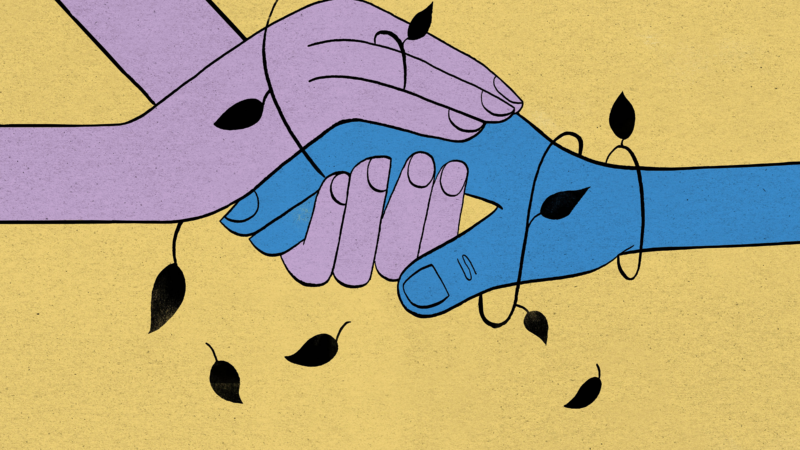Higher prices are likely for these 10 grocery items when tariffs hit
A trip to the grocery or liquor store is about to become even more expensive, economists say, following the latest round of import tariffs announced by President Trump on Wednesday. Those tariffs — taxes paid by businesses on goods from abroad — come on the heels of a previous round aimed specifically at Canada, Mexico and China.
Prices for items such as seafood, coffee, wine, nuts and cheese are all expected to rise. And if you’re tempted to grab a candy bar while you’re in the checkout line, you’ll probably have to pay more for that as well.
Food industry analyst Phil Lempert, also the editor of supermarketguru.com, estimates that with the latest tariffs “probably almost half of the products in a supermarket — about 40,000 products — will be affected by these tariffs, whether it’s the entire product or just an ingredient.”
Joseph Balagtas, a professor of agricultural economics at Purdue University, says food prices will also be affected by other factors related to tariffs, such as higher costs for fertilizer from Canada and a weaker U.S. dollar.
“A main takeaway here is that the country-specific, food-specific tariffs will not tell the whole story,” he says. “This is such a big change in policy that there will be broader implications.”
It’s impossible yet to know how much the tariffs will affect prices, but with the 10% tariff for many countries and higher “reciprocal tariffs” on other nations, the tariff rates by country could provide some clues.
Here are 10 grocery items you might want to keep an eye on and their country of origin (with tariff rates in parentheses).
Seafood
Some top sources: Chile (10%), India (26%), Indonesia (32%) and Vietnam (46%) are the largest suppliers, according to the U.S. Department of Agriculture.
This category is likely to take a big hit because the U.S. imports the vast majority of its seafood — up to 85% according to the National Oceanic and Atmospheric Administration — and several countries that supply fish and shellfish to the U.S. have been among the hardest hit by the tariffs.
Coffee
Top sources: Brazil (10%) and Colombia (10%), according to USDA.
The U.S. is the world’s largest importer of coffee, with about 80% of U.S. roasted imports coming from Latin America. More than 60% comes from just two countries — Brazil and Colombia, USDA says.
Fruit
Some top sources: Guatemala (10%), Costa Rica (10%) and Peru (10%)
Guatemala and Costa Rica are leading exporters of bananas to the U.S. Guatemala also ships melons, plantains and papayas, according to USDA, while Costa Rica exports pineapples, avocados and mangoes.
“These products don’t have a long shelf life, and with the tariffs, we’re going to face significant issues with both price and availability,” Lempert says.
Alcohol
Top sources for wine: the European Union — France, Italy and Spain (20%). New Zealand (10%) and Australia (10%), according to USDA.
Top sources for beer: Mexico (25%), the Netherlands and Ireland (both with the EU’s 20% tariff) and Canada (25%)
If your favorite summer beverage is Modelo, Corona, Heineken or Guinness, you’ll likely be paying more. Tequila imports from Mexico have also seen a surge in recent years and will be affected by the tariffs.
Lempert says the imported alcohol sector is likely “to be clobbered.” He also notes that beer sold in cans is also going to get a double hit due to tariffs on China and other aluminum producers.

Beef
Some top sources: New Zealand (10%) and Australia (10%), according to USDA.
Although 90% of beef consumed in the U.S. is domestically produced, tariffs will likely add to existing price pressures. The cost of ground beef for consumers, for example, is already at historic highs and according to the USDA, the U.S. cattle herd is the smallest it’s been since 1951.
Rice
Top sources: Thailand (36%) and India (26%), according to USDA.
Although most rice sold in the U.S. is domestically produced, nearly a third is imported, mainly jasmine rice from Thailand and basmati rice from India.
Cheese
Top sources: Italy, France, Spain and the Netherlands (all subject to 20% EU tariff), according to USDA.
Parmigiano-Reggiano, brie and Gouda could also see price rises.
Nuts
Top sources: Vietnam (46%), Côte d’Ivoire (21%), Brazil (10%), Thailand (36%), according to the World Bank.
Cashews, pecans and macadamia nuts are likely to see the largest price increases.

Chocolate
Top source: Côte d’Ivoire (21%) and Ecuador (10%), according to USDA.
The Hershey Company, one of the largest U.S. importers of cocoa beans, says it sources its supply from Brazil, Cameroon, Côte d’Ivoire, Colombia, Dominican Republic, Ecuador, Ghana, Indonesia, Nigeria, Papua New Guinea and Peru.
NPR reached out to Hershey, which makes Reese’s Peanut Butter Cups and Kit Kat bars, among others, to inquire about future price increases. A spokesman for Hershey, Todd Scott, said the company could not comment because it is in an earnings window.
However, Lempert says the tariffs come on top of “serious increases in cocoa beans for probably the past two or three years because of the weather and the political climate in … Africa.”
Olive oil
Top sources: European Union (20%), particularly Spain, Italy and Greece.
“Olive oil prices have gone through the roof,” Lempert says. “They’re going to go even higher.”
Judge orders Trump administration to continue to seek funding for the CFPB
The order is the latest in a complex legal battle over the fate of the Consumer Financial Protection Bureau, a watchdog agency.
In a year of steep challenges, there were still shining moments in global health
The Trump administration's deep cuts in U.S. foreign health aid had a devastating impact. Yet there were achievements of note in spite of it all.
An escalation in Yemen threatens to reignite civil war and widen tensions in the Gulf
Saudi Arabia bombed Yemen's port city of Mukalla, targeting a shipment of weapons from the United Arab Emirates for separatist forces. The UAE later said it would withdraw its forces from Yemen.
Cecilia Giménez, the artist who ‘restored’ the face of Jesus, has died at 94
Giménez international attention after she attempted to restore an old fresco. While it was immediately ridiculed at the time, the piece eventually turned into a tourist attraction.
What being around death taught this hospital chaplain about life
J.S. Park helps patients and their families cope with death every day as a hospital chaplain. He explains what to expect as a person is dying, and how to reckon with uncomfortable feelings about death.
Israel says it will bar aid groups, including Doctors Without Borders, from Gaza
Israel accused Doctors Without Borders, one of the largest health organizations operating in Gaza, of failing to clarify the roles of some staff that Israel accused of cooperation with militants.








